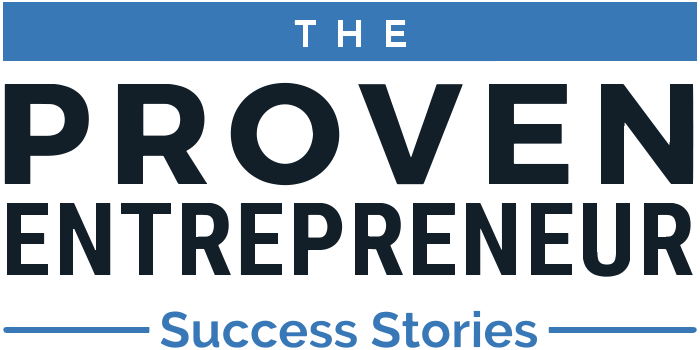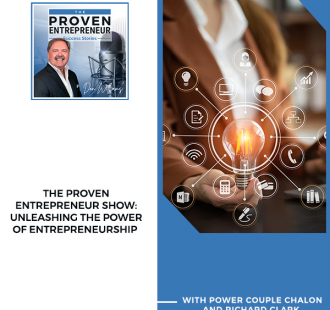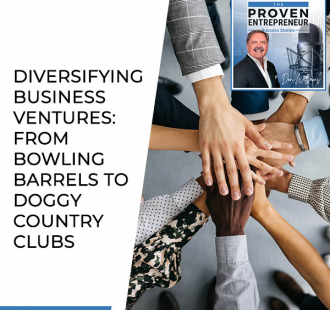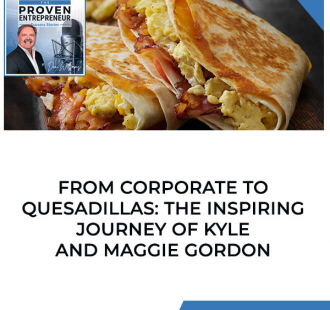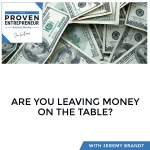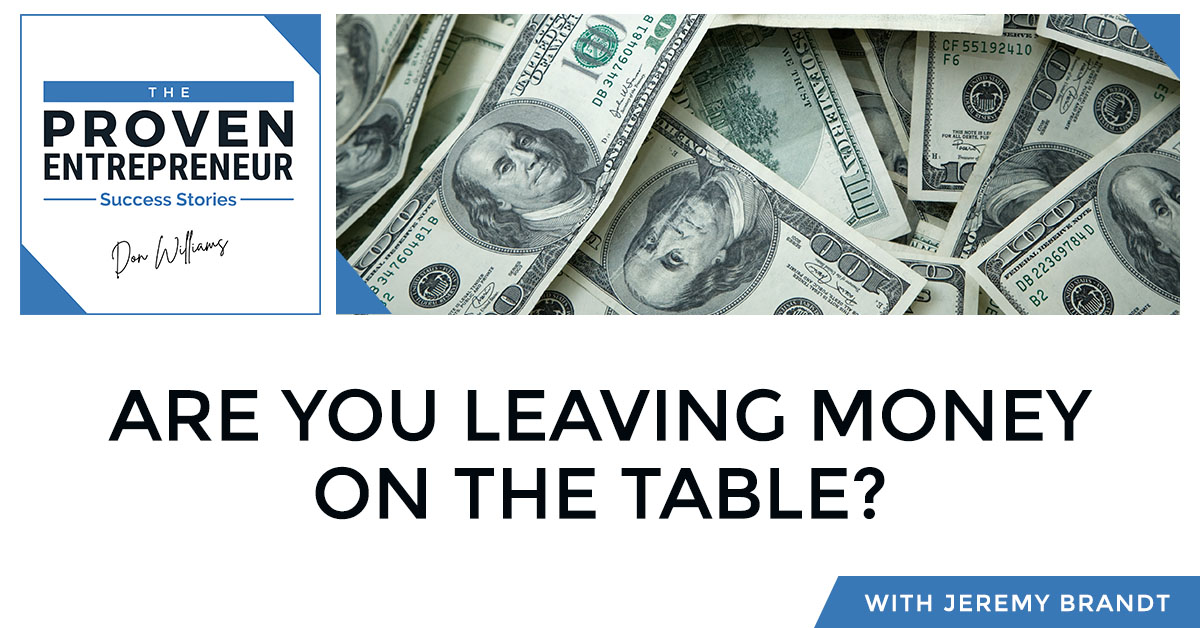
Sometimes if your pricing model isn’t working, maybe it’s time to change it. Jeremy Brandt changed his model when he found out that the market determines the value of the product, he didn’t. So he and his team changed up their model and it resulted in more success. Join Don Williams as he talks to Jeremy about growing your business the right way so that you could see more profit. Jeremy is the founder and CEO of We Buy Houses and truly believes in the power of lead generation. Know that as a business owner, there is a lot of money left on the floor. So you have to take the time to really think about how you spend and structure your credit card. Build networking relationships today so that you can be a successful entrepreneur!
For information on how to work with Don visit Work With Don Williams
You can also reach out to Don Williams at https://donwilliamsglobal.com
Please join Don and his businesses in support of St. Jude’s Children Research Hospital in its Mission to cure Childhood Cancers. You can donate to St. Jude at stjude.org/donate
—
Listen to the podcast here
Are YOU Leaving Money On The Table?
More Money Through Proper Pricing With Proven Entrepreneur Jeremy Brandt
In this episode, I have a good friend, great entrepreneur, Jeremy Brandt, Founder of We Buy Houses. Tell me, how long have you been with We Buy Houses?
I started WeBuyHouses.com years ago. Prior to that, I had a lead generation business where we sold leads to real estate investors all over the country and saw working with thousands of investors that there was a need for a reputable national brand that residential investors could operate under. We built WeBuyHouses.com to be exactly that thing, a national brand that investors all over the country use in their business to work with home sellers.
Do I understand that you started out generating leads and then you became a consumer of your leads?
That’s right. We started years ago generating leads for investors. We still do that. That’s still the largest lead gen company for investors in the country. We’re excited about that. That company is called Fast Home Offer. Out of that experience, we started seeing a need in the marketplace for this branding. There’s very little branding around residential real estate investing.
It’s a fragmented market. People don’t know who to trust. With their signs on telephone poles, you don’t know who’s behind that sign. We wanted to create an environment where consumers could trust the company that they were dealing with. The idea behind WeBuyHouses.com was to create a trusted brand for consumers and identify very experienced and established real estate investors that we would be proud to be part of our brand in cities all over the United States. We’re in 90 or 100 cities all over the US buying thousands of houses a year under the We Buy Houses brand.
Let’s go back to young Jeremy, your childhood. Where are you from?
I grew up in Spokane, Washington, which is on the Eastern side of Washington State, right on the Idaho border. I had a great childhood with loving parents and a big family. I’m the oldest of seven. I have lots of brothers and sisters. I was very entrepreneurial from a young age. I was the kid that was buying candy bars from my mom at Costco and selling them around the neighborhood.
My dad, at one point, worked at a machine shop. They provided gloves for a cheap price to all the machine shop workers. I bought a giant box of gloves from my dad and went around the neighborhood and tried to sell them to people for gardening. There wasn’t a business idea that I didn’t like when I was young and into my teens.
Were your parents entrepreneurial? Is that what started it or did you come with that at birth?
There's very little branding around residential real estate investing. It's a really fragmented market. Click To TweetI was born with it. My dad was a little bit entrepreneurial. He bought a house and would fix it up. We would live in it for a couple of years and then sell it but not as a business. He was a pastor of a church up in Washington State. That was a great environment for me to grow up in. It was a small church, so he worked full-time throughout my childhood doing other things. It’s somewhat entrepreneurial that I got a little bit of a bug from him but I was born with this drive to solve problems, figure things out, mow lawns, shovel snow and do all that stuff as a kid.
You live here in Dallas-Fort Worth. How did you get from Spokane to DFW?
I moved down here when I was sixteen with my family. There was some investment opportunity. We have some relatives that live down here in the area. It came down for about a year. At the time, I was into computers and found a job at a computer store. The other thing about my background is I was homeschooled. All the kids in my family were homeschooled all the way through.
It made for a great flexible environment. I loved it and thrived under it. I got a job at a computer store when I was sixteen here in Bedford, Texas. I couldn’t imagine somebody would pay me to sit around all day and play on computers. It was so much fun. When I was seventeen, my parents moved back up to Washington as they had planned to. I decided I was going to stay here and they were supportive of it. I worked a little bit longer at the computer store and then got involved in larger things. A few years later, I started a business.
You graduated from homeschool. I was a homeschool parent myself and my three nephews went all the way through homeschool. I know a little more than a little about homeschooling. After that, did you go on to college, the Marine Corps, the Merchant Marine? What did you do?
I was a very entrepreneurial kid. At seventeen, I was not running a business but was aggressively growing my career. I looked around and said, “Four years of college versus ’98, ’99, the height of the tech boom, I can’t miss this wave.” I kept working and decided not to go to college. I worked successfully for several companies and grew my experience. At the time, I was a Network Engineer, designing a lot of computer networks and doing a lot of the foundational pieces of the internet.
When I was nineteen, this was the silly time when I got a job as a Director for a consulting company here in Dallas. I was flying all over the country, managing projects and doing all kinds of interesting things. We were building a lot of dot-com startups, eBay and major league baseball of the time. I had a bunch of stock options and thought I was going to be a millionaire at 22 and life was going to be great. As we all know, that ended pretty tragically. The company ended up going bankrupt and I lost all the stock options I had.
At one point, they were worth millions of dollars and then went to zero. I got laid off. That was one of the worst and best things that ever happened to me. I say that because I had this incredibly high-paying job with tons of upside doing what I loved. Sometimes for an entrepreneur, if you’re born an entrepreneur, that’s a trap because I was making so much money and having so much fun. It was robbing me of the opportunity to start and build a business, which is what my real passion was. It’s tough to say, “I’m going to go from 6 figures to 0,” especially in your early twenties and build a business.
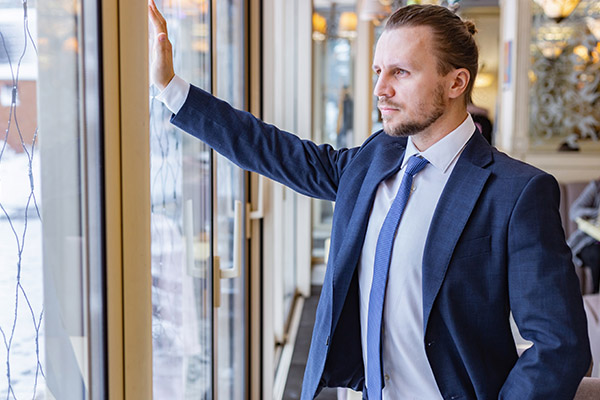
I got laid off. It’s the best thing that could have happened in retrospect. I started flipping houses in Dallas. I had a little bit of experience in real estate. I met a friend that was doing it successfully. I teamed up with him and said, “I’ll teach you all the tech side of things. I know how to automate your business and do online marketing. You show me all the ropes in house flipping.” We did that for about six months. I started flipping a lot of houses and went out on my own. I then realized very quickly that the business of generating the leads of home sellers was, in my opinion, much more scalable and stable than the actual house flipping itself.
I started doing online marketing and getting home sellers from Miami and LA to contact us to sell their houses. I didn’t know what to do with them. I was going to fly to Miami just to look at a house, so I started selling those leads, cold calling real estate investors in these different cities and offering to sell them leads. This is much the height of the dot-com boom. This was the height of the real estate boom. Everybody I called said, “Yes, where can I send money? I can’t send it fast enough.” The lead-generation company started growing very quickly.
We stopped buying houses and focused on the tech business. I started growing the tech side of the real estate business. The real estate market crashed after that. I tell people, “Don’t invest in any business that I’m in because it’s going to crash years later.” It has provided a lot of great experience in running the business. You’re tested in the downtimes. I joined a group called Entrepreneurs’ Organization when I was in my early twenties as part of that business.
It taught me a lot about the resiliency of what you learn in the downtime. Those are the toughest times. COVID is coming out of some of the toughest times that most of us have ever been through but you learn how to run a business when times are tough, not when they’re great. Those have been great learning experiences for me through those ups and downs of building a business.
Pretty much anybody can do it when things are going well.
It’s like investing in stock in the ’90s. If you threw a dart at a wall and it was a tech company, you were going to make a lot of money until you weren’t.
Your company started strictly out of the lead generation side. Lead generation is maybe the number one challenge for most entrepreneurial businesses, having a consistent stream of qualified leads. What’s a hard moment or lesson you’ve learned somewhere in the entrepreneurial path that you could share with us?
One of the tough lessons that I learned in the lead gen business was doing very well at the height of the real estate market right before the crash. I started buying other companies and investing in a lot of other things. It was going so well that I got a little bit distracted from the core business that needed a lot of focus. When the real estate market crashed, I did not respond fast enough to the downturn. My natural mode of operation is very positive, “We’ll get through it. Keep pushing hard. If you work hard and push, you’re going to get through anything,” which is true but you have to be realistic about things.
The business of generating the leads of home sellers is much more scalable and stable than the actual house flipping itself. Click To TweetI was slow to do things you wanted to do, like lay off employees, reduce office space and all the overhead. We had 2 to 3 years of losing money in that lead gen business where I worked for 12 months and at the end of the 12 months, I had $0 to show for my 12 months of effort. That was a tough time. In retrospect, I should have made a lot of tough decisions a lot earlier in the process. You talk about learning lessons from your tough times in life.
In COVID, that has been a great thing that’s allowed us to manage through COVID much faster than in the past if I hadn’t had those life experiences. I was able to reduce overhead very quickly and think about the things that were essential to the business versus things that were nice to have in the business and set us up so that we could weather but we didn’t know it was going to be a month or years of tough times. One of my biggest learnings has been how to spot tough times and then downsize when you need to and not wait too long to make those tough decisions.
It’s too expensive to wait too long. I felt for a long time and partially through my journey that I either win or I learn. Learning is a little slower winning. It’s still winning, just a little slower. What about a warp speed moment? Business is going pretty well. All of a sudden, 1, 2 or 3 things fall into place and then it’s phenomenally good. Typically, as entrepreneurs, we see the highs and lows for a while. Do you have a warp speed moment you can share with us?
I call those hockey stick moments where you’re on a regular trajectory and then something gets dialed in and explodes. We’ve had a couple of those in the business. One that comes to mind is we changed our pricing model entirely for how our business worked. In the past, we had this flat fee pay per lead model, where we would determine the value of a lead and sell it for that price. Real estate is very local, so the value of a lead and the cost to generate a lead is different all over the country. That became a big struggle for us to understand what the value of our product was times 3,000 counties all over the country.
We spent a lot of time thinking about it. We came up with the idea of a bid-based model for the pricing of our leads. Similar if people are familiar with Google Ads. It’s the same way that keyword bids work. We use that model in our lead generation business, where we allow real estate investors to bid against each other for the price of the lead. That was a hockey stick moment for us because we came upon the situation where the market determined the value of our product. We didn’t determine the value of our product.
Oftentimes, entrepreneurs undervalue what they have. They will look at, ” What does it cost me to generate this thing, widget or product? I’m going to add 50%, 30% or whatever my margin needs to be. That’s what I sell the product for.” Rather than what they think is a much more profitable way to do it. Start with the value to the client like, “What is this worth to the client? Regardless of what it costs me to generate it, how do I charge them a fair price for the value that I’m providing them instead of what my cost is?”
The bid-based model put that on its head and created that environment where the client told us, “What is the value of this thing?” In many cases, it was 3 or 4 times more valuable than we thought that it was. The client said, “I’m willing to pay this price for this thing because it’s so valuable to me.” That transformed our business and set us on a different trajectory.
The ready, willing and able establishes the market. It’s as simple as that. One of the things that I share with my consulting clients is, “Can we raise prices?” Many times, entrepreneurs are too modest. They start with the cost of goods and do some type of adder instead of saying, “What value is my client getting?” That’s a much more equitable way to price. What’s a nugget something you could share with us that we don’t know or something you know that we don’t know that we’d like to know?

I don’t know there’s anything I know that you don’t know. For me, if I were to think about some of the nuggets in my business and my life, two things are important. One is taking time for yourself. Oftentimes, I step away from the business for a day, a week or a month to spend time with other business owners but not specifically talking about business on a workday when there’s a lot of stuff to do.
It’s important, especially as the leader of a business, to step away, refresh your mind, decompress and relax. As a leader, the most important thing that you do is make decisions. It’s tough to make decisions if you’re overwhelmed with the minutia, the day-to-day and the fire here and there. That’s important to do.
I remember I had the pleasure of having dinner with George W. Bush one time at an event. We were sitting at a table and asked questions of him. He made a joke. He said, “The reason every president has gray hair is that every easy decision ever made was made before it got to the president. The only decision a president ever makes is the tough, impossible decisions with two bad outcomes.” He was talking about the presidents taking time for themselves. He said, “It was important to take time for yourself, even as the president of the United States, when there are one million things to do because you have to have a clear head and be calm to make a good decision.”
That’s something that I took away from that meeting that I’ve tried to apply a lot in my life. The other fun nugget thing that I spend a lot of time on is in our business, we spend a lot of money on advertising. It’s our number one expense in our business. We have a lot of fun playing with credit card points and figuring out ways to maximize the value of the dollar that you spend.
It’s a lot of fun and you can geek out on it a bit but for a business owner, there is a lot of money left on the floor. If you spend a lot of money in your business on credit cards, taking a little bit of time and thinking about how to structure your points can be tens of thousands or hundreds of thousands of dollars in your pocket that you didn’t realize were sitting out there by spending a little bit of time thinking about the rewards on credit cards.
You’re the king of that.
I don’t know about that but I had fun with it.
Care to share one tip on how to maximize credit card points?
You really learn how to run a business when times are tough, not when they're great. Click To TweetMy favorite tip, if anybody out there runs an advertising business, is we found out that with a certain American Express card, you can get 4 points per $1 for advertising. With another American Express card, you can convert those points into cash in a brokerage account at $1.25 per point. In effect, for all of our advertising, we get 5% to 7% cashback off of our advertising spend, which ends up being a lot of money.
According to the IRS, that’s a rebate. It’s not cash in your pocket. It’s also tax-free. It also comes to you personally versus going into your business. When you think about what your tax bracket is, your effective rate of return on your advertising spend could be up to 10%, which if you’re a lead gen company or a big company spending millions and millions of dollars on advertising, that’s a lot of money sitting out there to be captured.
Folks, you might want to back that up and read that one more time. The first time I learned it, I had the sigh, “I’m going to have to look at that a little deeper.” Thank you for sharing that. If we could put you in a time capsule and send you back to 20-year-old Jeremy, you get 5 minutes with him. You can share only 1 piece of advice for 5 minutes, what would you tell yourself that would speed you on your entrepreneurial path?
If I were to look back at my younger self and give him a piece of advice, it would be to start building relationships with people a lot earlier. Not in a way that is self-serving but in a way that you can help them and they can help you. A lot of entrepreneurs are this way. My personality is very individualistic like, “I’m going to make stuff happen myself.” Early on, I didn’t spend a lot of time building relationships with people in the industry or entrepreneurialism in general.
That would have accelerated my growth in business a lot quicker. It would have been much more satisfying to find groups of people to be around that have a like mind. Iron sharpens iron. Surround yourself with smart people that can help you and you help them make you a better person. When you’re a better person, you’re a better leader. When you’re a better leader, you run a better business.
Let’s give EO a plug. Entrepreneurs’ Organization, you’ve been a member of how long?
I joined EO in 2012.
Where did you join?

EO is a chapter-based organization, so we have chapters all over the world and I joined the Dallas chapter.
The next big chapter in your EO path was what?
I’m the guy that wants to get involved in everything right away. I joined the chapter and did some international travel with the organization and then got on the Dallas Board of Directors. Out of that, we felt like we needed to have a chapter in Fort Worth, which is for people who aren’t familiar with the city, it’s right next door to Dallas. Dallas is a wonderful chapter. Fort Worth has its culture and sense of identity. We had this problem where people from Fort Worth would join Dallas and then leave after a couple of years because of the drive or for whatever reason.
As I rolled off the Dallas board myself and several other people from that chapter that lived in Fort Worth, we started a chapter in Fort Worth. That was in 2012. We got together and formed a chapter. For an entrepreneur, there’s nothing more fun than getting a bunch of other entrepreneurs together and creating something. It scratches all of our itches. We had a great time. It was tons of fun. I met all kinds of wonderful people. Years in, we have about 100 members in EO Fort Worth. Some of my best friends are part of the Fort Worth organization and global organization.
I’ve spent years traveling all over the world with EO. My story about having dinner with President George W. Bush was an EO moment. I was at a table with seven other people and a former president of the United States through my involvement in the organization. There are so many once-in-a-lifetime experiences I’ve had as a part of being in this group.
What would you say is the number one takeaway after years in EO? I’ve been in EO myself. It’s a long list but share one.
There are a lot of benefits. If you’ve been in for years, you could talk about the millions of dollars that you’ve saved or made as a result of the things you’ve learned being part of the organization. I could tell a lot of those stories. As time goes on, the number one thing for me has been relationships. Over half of my best friends, people that I spend weekly or a couple of times a month with, are people that I met through the Entrepreneurs’ Organization. The reason for that is that you find your tribe and like-minded people.
Entrepreneurs are odd ducks. Our brain works weirdly. We look around us and see problems everywhere and think about how we’re going to solve every problem that we run into. For people who have careers and work at big Corporate America, sometimes it’s tough for them to understand what it’s like. They have a lot of preconceived notions about what it’s like to be an entrepreneur, that you’re flying on jets and sailing boats around when you’re trying to figure out how to make payroll, pay the bills and put it on your Amex card.
Don't network with people in a way that is self-serving, but in a way that you can help them and they can help you. Click To TweetFor me, the biggest thing has been the relationships, guys like you and others that I can call and have lunch with any time. We could not see each other for a year and immediately slip into a conversation about business or life because our brains are wired similarly enough that there’s an instant connection between people in the organization.
I’ve had that with people in Fort Worth, India, China and all over the world where you can barely speak to each other because of the language gap but you have this instant connection because of your entrepreneurial nature. It’s been tons and tons of fun. As I look back, that’s the most important thing I’ve gotten out of the organization.
I’d echo. The connection is unbelievable. I like what David Galbenski said. He coined the term Instamacy. EO entrepreneurs have that instant intimacy regardless of location, culture or language. If somebody wanted to reach out to you, how would we get in touch with you?
I’m pretty accessible. I’m on most social media. It’s Jeremy Brandt or you go to JeremyBrandt.com and contact me there. I’m very responsive. I’m on LinkedIn and everything else. I love talking to entrepreneurs and working with early-stage entrepreneurs. I do a lot of mentoring with very early-stage entrepreneurs involved in a lot of business plan competitions. I do a lot of judging with the Global Student Entrepreneur Awards. Part of my passion for being an entrepreneur and loving entrepreneurship is meeting and learning from other people that are at all levels, from small to large, building businesses and figuring out how to make them work.
Thank you so much for joining us on the show. It’s my pleasure.
It’s my pleasure, Don. It’s good to be here.
That’s it for this episode with Jeremy Brandt.
Important Links
- WeBuyHouses.com
- Fast Home Offer
- Entrepreneurs’ Organization
- Jeremy Brandt – Instagram
- JeremyBrandt.com
- LinkedIn – Jeremy Brandt
- Global Student Entrepreneur Awards
About Jeremy Brandt
 A serial entrepreneur focused on founding, funding, and building companies that leverage technology and marketing to scale quickly in the real estate space. Regular media contributors include FOX News, Larry King Live, CNBC, CNN, FOX Business, NPR, the WSJ, USA Today, and others. Past-President of Entrepreneurs’ Organization (EO) Dallas, Founder of EO Fort Worth and Former Chair of EO’s Global Governance Committee.
A serial entrepreneur focused on founding, funding, and building companies that leverage technology and marketing to scale quickly in the real estate space. Regular media contributors include FOX News, Larry King Live, CNBC, CNN, FOX Business, NPR, the WSJ, USA Today, and others. Past-President of Entrepreneurs’ Organization (EO) Dallas, Founder of EO Fort Worth and Former Chair of EO’s Global Governance Committee.
For information on how to work with Don visit Work With Don Williams
You can also reach out to Don Williams at https://donwilliamsglobal.com
Please join Don and his businesses in support of St. Jude’s Children Research Hospital in its Mission to cure Childhood Cancers. You can donate to St. Jude at stjude.org/donate
